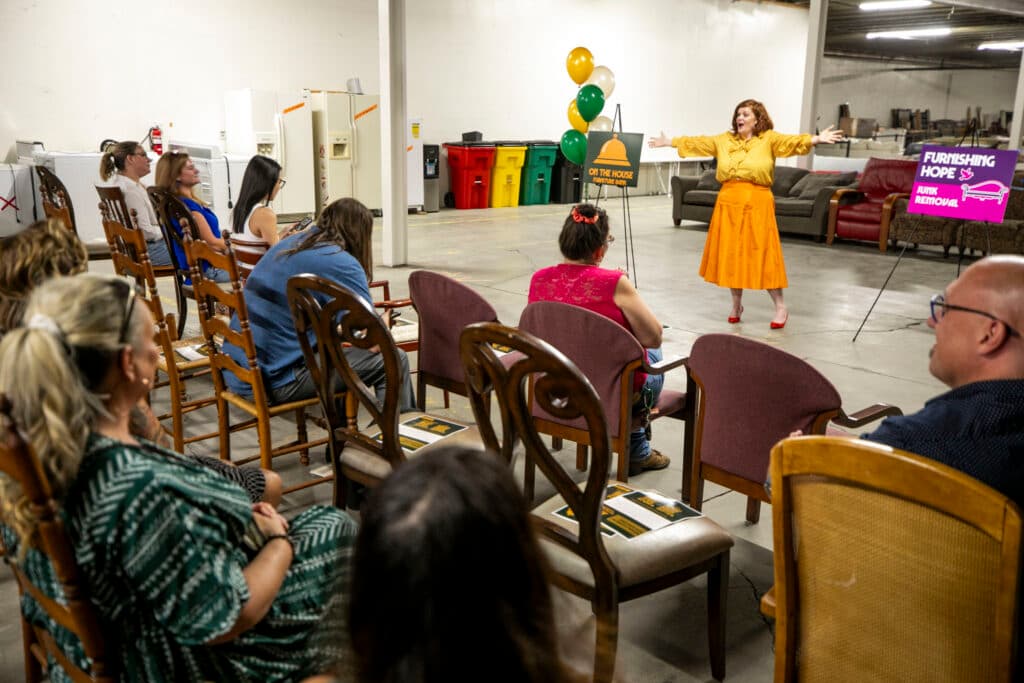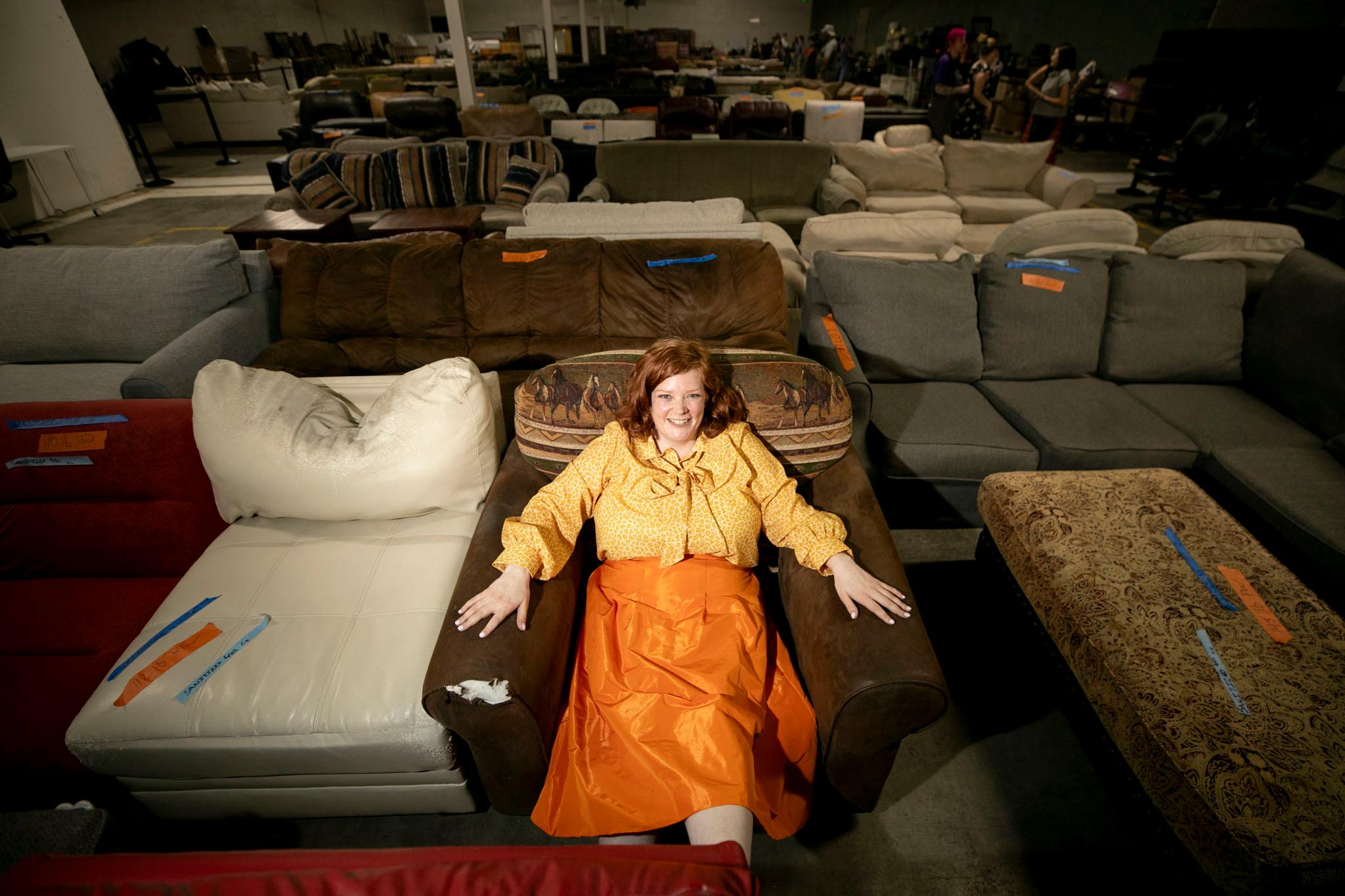Rows and rows of couches, chairs and dressers, plus a big box of trophies and a life-size kangaroo statue, all sit in a Sunnyside warehouse.
The furniture, which otherwise would have wound up in a landfill, is patiently awaiting dropoff to new owners — people experiencing homelessness who are moving off the streets into their own housing.
The furniture belongs to On the House Furniture Bank and its associated junk-hauling company, Furnishing Hope Junk Removal, which opened for business Wednesday.
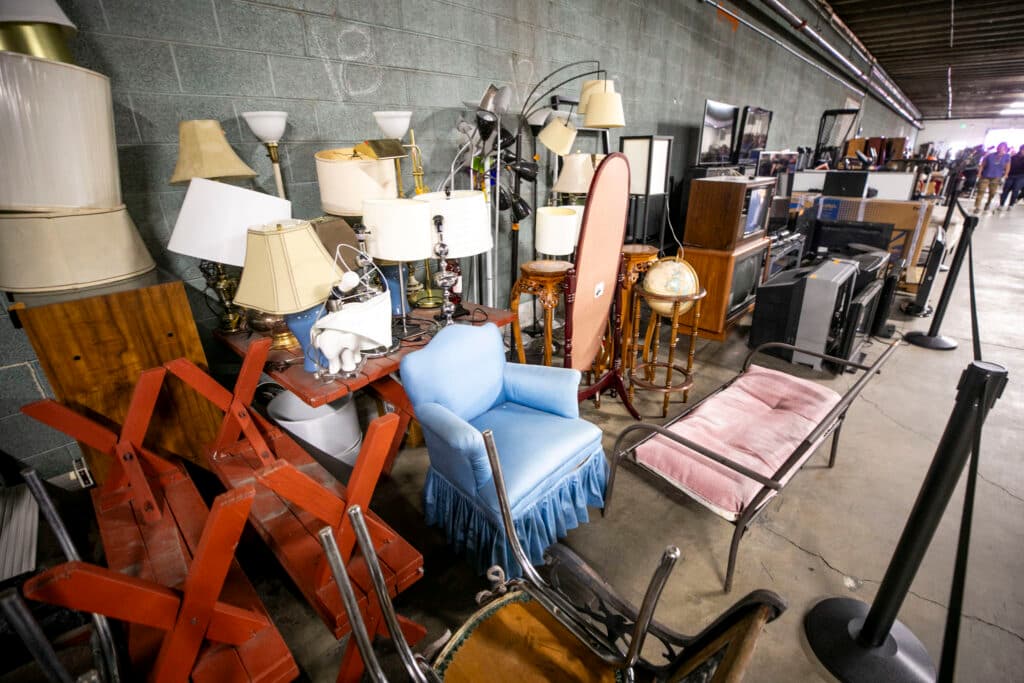
The initiative aims to fill a gap in homelessness resolution, helping people coming off the streets furnish apartments for free.
Furnishing Hope Junk Removal charges people getting rid of furniture for pickup services. Then, On the House partners with local homelessness groups to give away and deliver the pieces for free to people moving indoors.
Emily Jane Zahreddine started the initiative after 15 years in Washington, D.C., working in emergency management for the government.
“I wanted to have a bigger impact on my community,” she said.
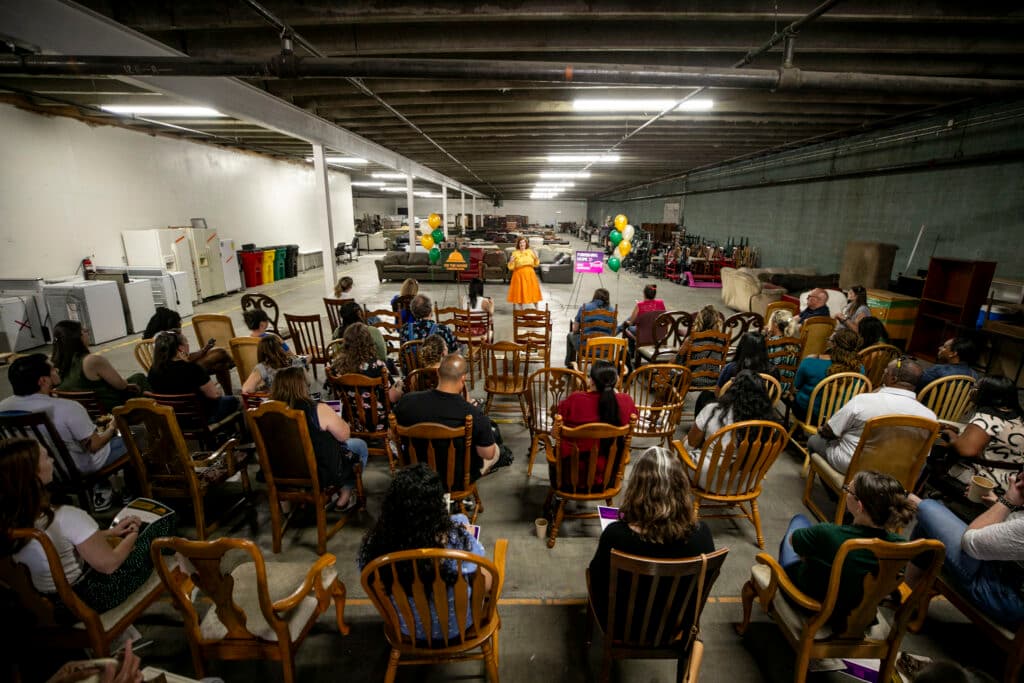
Once people connect with On the House they come to the warehouse to pick out furniture.
Furniture recipients choose between over a dozen pieces based on their number of family members, plus extra furniture for hosting.
“Everybody deserves community and the opportunity to have a guest over,” Zahreddine said.
So far, On the House has not had issues stocking up the warehouse with furniture, including some unusual items.
Gretchen Kruger, who picks up the phone and does dispatch for Furnishing Hope, once helped arrange a pickup for an accordion player with more than 100 trophies. A local photographer provided the kangaroo sculpture, and another customer needed help picking up a hoard of furniture brought over from China.
Kruger came to the job after working in food service. The work is meaningful because she can relate to struggling to make ends meet, she said.
“I grew up in the generation where you have to work six jobs just to pay your monthly rent, and to know what it's like working as hard as I do and not being able to afford a bed or a couch or any of that stuff, and just constantly trying to figure out how I was going to furnish my belongings, I think that this is great,” Kruger said.
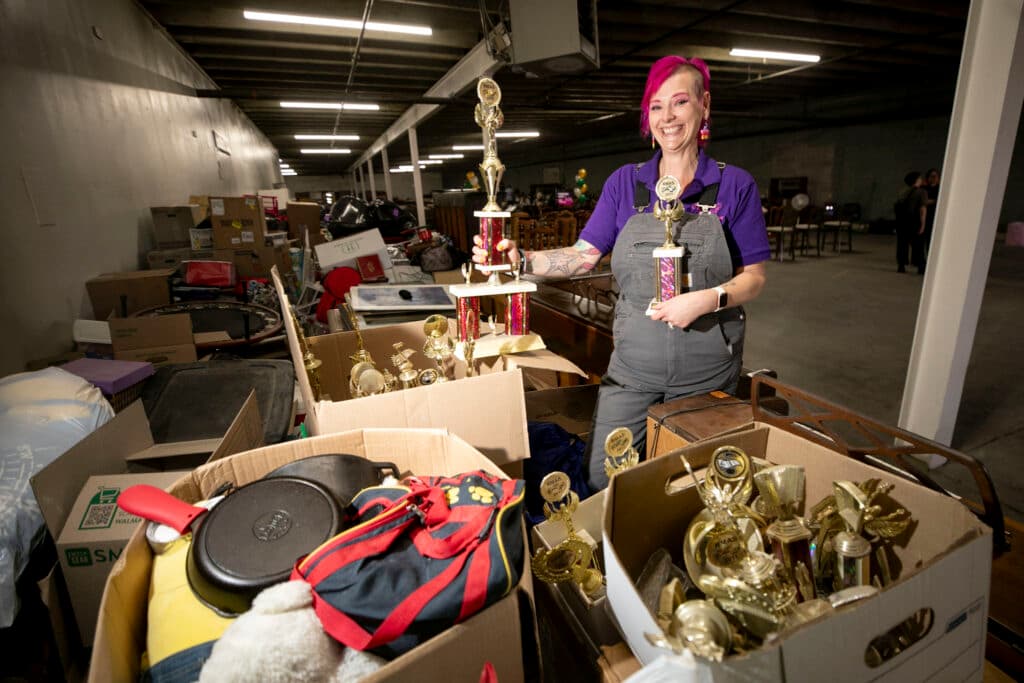
Nonprofit staff in Denver say the free furniture will be a big help.
Tressa Nawyn and Kristin Slaybaugh work at senior support services, which helps seniors experiencing homelessness.
“Even that first month's rent and deposit can be a barrier once you get a place, and so then furniture is not even on the table,” Slaybaugh said. “This has been filling a need that we've been looking for in Denver for a long time.”
Nawyn said the ability to pick out furniture, rather than just taking a single donation, can go a long way for people without many options in their day-to-day life.
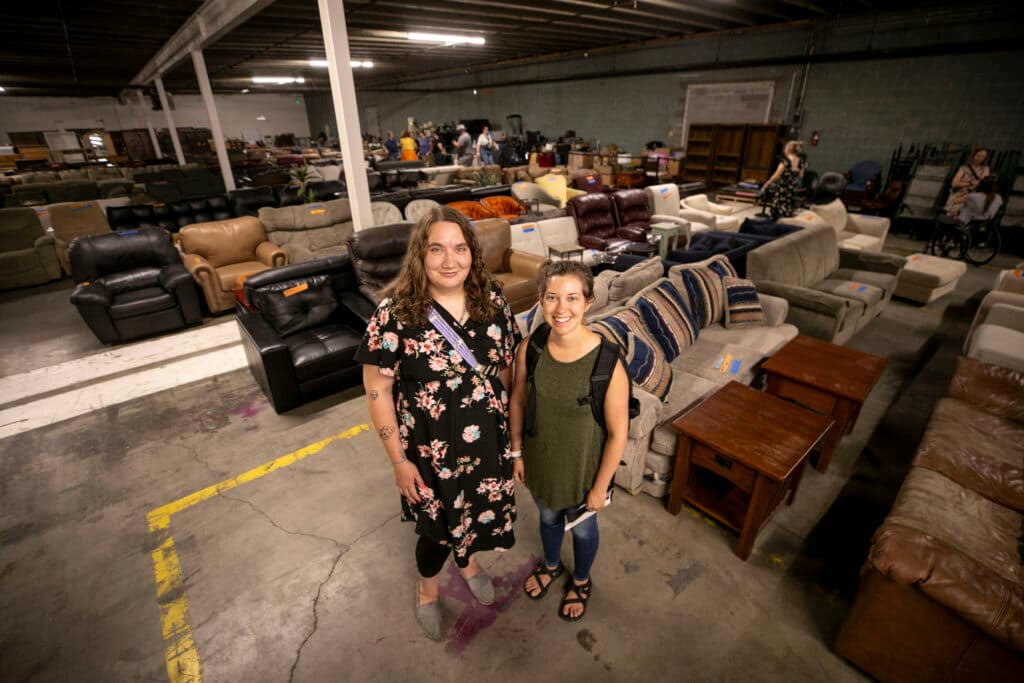
“A lot of times when folks are in the systems that they're in, they don't have a lot of options and agency and choice,” Nawyn said. “There's not a lot of choice in even locations where they can live because subsidized housing tends to only be in certain locations, and so I think as much as we can give folks autonomy and the ability to choose things, we should be doing that.”
Zahreddine, On the House’s founder, said she sees all this as the next step in the city’s homelessness work, which has focused largely on getting people off the streets and indoors.
“We can give people roofs, we can put people in apartments,” she said. “It's shelter, but that's not acceptable. Furniture is dignity.”
